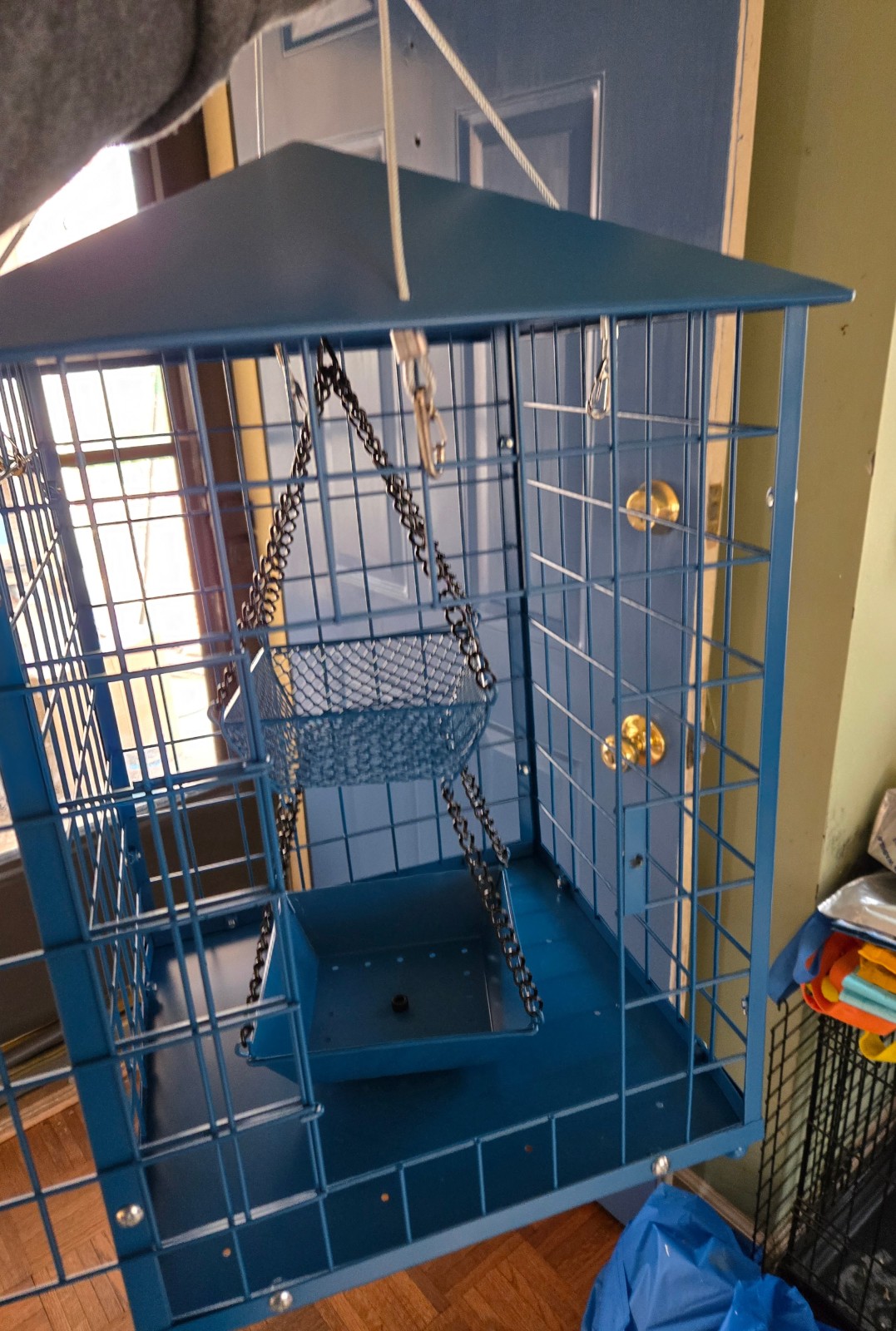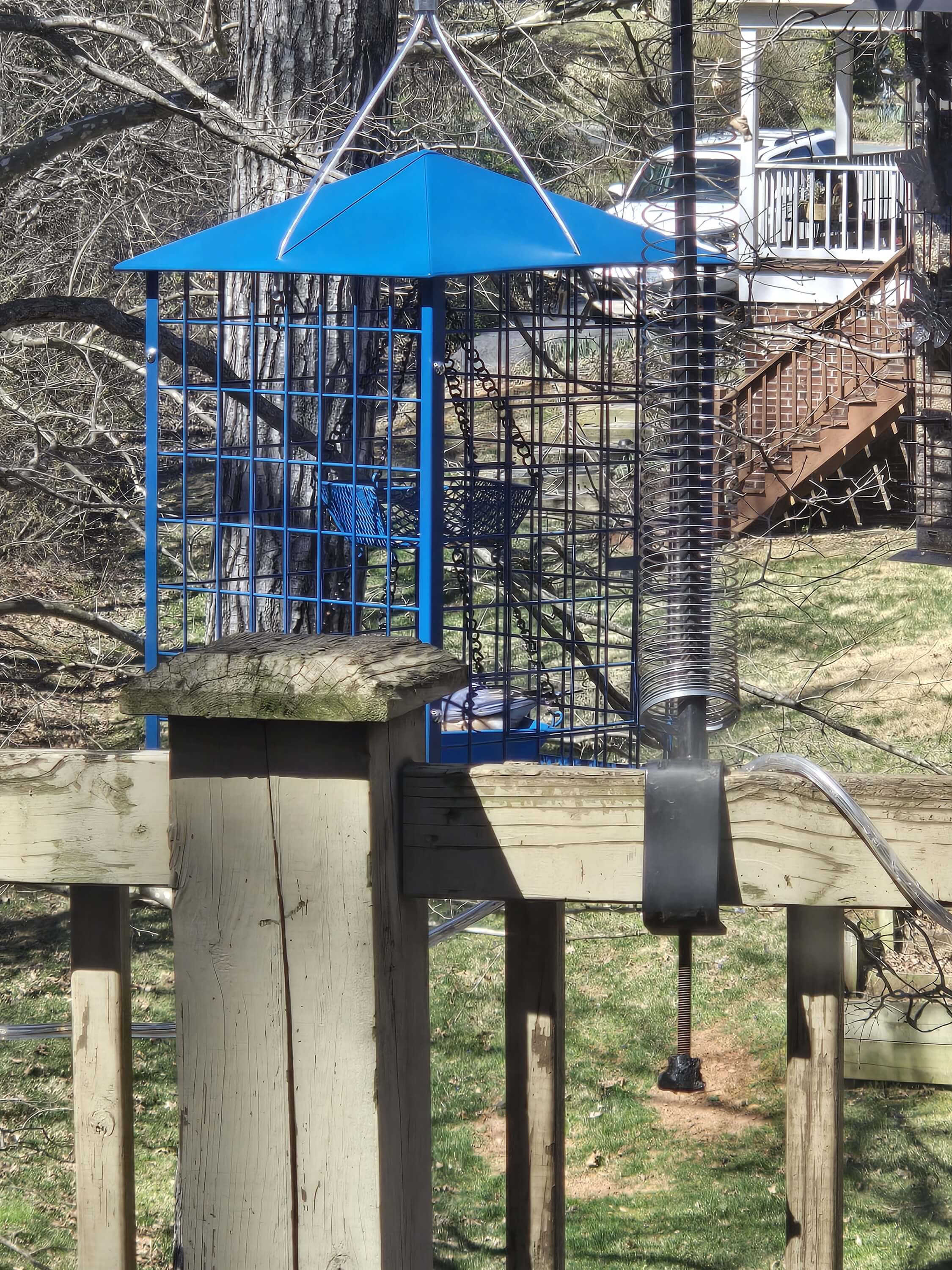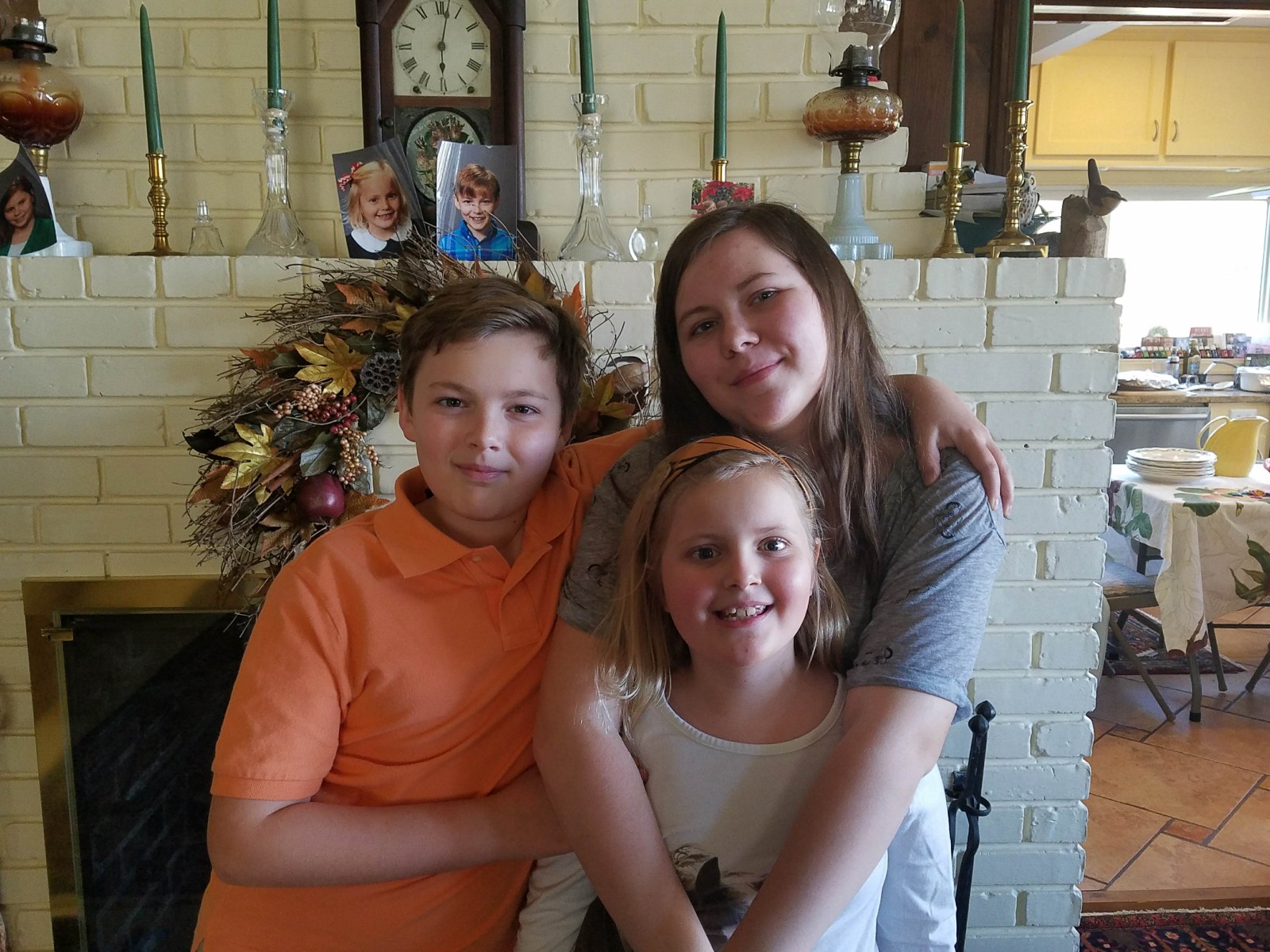
When School Closes: Learning Still Happens (Promise)
Every time schools close because of weather, I see the same concerns start bubbling up. What are we going to do? What about school? Are they going to fall behind?
And every single time, my mind flashes back to the government shutdown almost six years ago.
Back then, so many of my friends took to social media in full-on panic mode, spiraling over what to do with their children’s education. In an effort to calm the waters, I made what I thought was a fairly harmless suggestion:
Take a break. Build a blanket fort.
You would have thought I suggested canceling education altogether.
People I know in real life — including several sorority sisters — absolutely lambasted me online. (Two months later, those same people were buying IKEA frames for elaborate, aesthetic blanket forts… but I digress.)
So, at the risk of being ridiculed once again, I want to offer a few ideas for learning at home when school is closed. Take ’em or leave ’em. Modify them for different ages. Use what works, skip what doesn’t.
At the end of the day, the choice belongs to the parents.
Ideas for Learning at Home (In No Particular Order)
Read.
Read to or with your younger children, and let your teen read something that actually interests them. The “level” doesn’t matter (that arbitrary label is a discussion for another day).
Ranger’s Apprentice for the millionth time? Great.
Automotive, gardening, or fashion magazines? Still reading.
The goal is engaging the brain with the written word — nothing more, nothing less.
Read to or with your younger children, and let your teen read something that actually interests them. The “level” doesn’t matter (that arbitrary label is a discussion for another day).
Ranger’s Apprentice for the millionth time? Great.
Automotive, gardening, or fashion magazines? Still reading.
The goal is engaging the brain with the written word — nothing more, nothing less.
Cook together.
Cooking is one of the best learning activities out there. Math, science, reading, and even history can all make an appearance with a little curiosity. It’s also a life skill and a way for kids to contribute to the family — which makes it a favorite around our house.
Cooking is one of the best learning activities out there. Math, science, reading, and even history can all make an appearance with a little curiosity. It’s also a life skill and a way for kids to contribute to the family — which makes it a favorite around our house.
Research a winter historical event.
Turn it into a “Have You Ever Wondered” game: What would we have done if we’d been there? It sparks imagination, discussion, and critical thinking without feeling like an assignment.
Turn it into a “Have You Ever Wondered” game: What would we have done if we’d been there? It sparks imagination, discussion, and critical thinking without feeling like an assignment.
Go birdwatching.
This is a great time of year for it. Keep it simple or make it academic — your choice.
Younger kids can identify birds or count how many they see in a short sitting. Older kids can do deeper research. No bird feeder? Scatter seed on the ground or make one with pine cones, pie tins, peanut butter, and birdseed.
This is a great time of year for it. Keep it simple or make it academic — your choice.
Younger kids can identify birds or count how many they see in a short sitting. Older kids can do deeper research. No bird feeder? Scatter seed on the ground or make one with pine cones, pie tins, peanut butter, and birdseed.
Lean into Valentine’s Day.
Younger kids can practice fine motor skills cutting out hearts (no fancy supplies needed — old magazines and Amazon box paper work just fine).
Older kids can learn what a sonnet is and try writing one. Feeling adventurous? Research the real St. Valentine. (Parents, preview first.)
Younger kids can practice fine motor skills cutting out hearts (no fancy supplies needed — old magazines and Amazon box paper work just fine).
Older kids can learn what a sonnet is and try writing one. Feeling adventurous? Research the real St. Valentine. (Parents, preview first.)
Never underestimate play.
So much learning happens through “just playing.” Always has. Always will.Talk about civic virtue — then act on it.
Have a discussion about good deeds and responsibility, then find a neighbor who needs help digging out.
So much learning happens through “just playing.” Always has. Always will.Talk about civic virtue — then act on it.
Have a discussion about good deeds and responsibility, then find a neighbor who needs help digging out.
Explore a foreign language.
In our house, one child fluent in Spanish enjoys speaking it to his sibling who takes French. She’s finally learned enough to respond back, with me interjecting in English so no one gets too annoying.
If you’d prefer less sibling chaos, YouTube is a great place to learn something like ASL together.
In our house, one child fluent in Spanish enjoys speaking it to his sibling who takes French. She’s finally learned enough to respond back, with me interjecting in English so no one gets too annoying.
If you’d prefer less sibling chaos, YouTube is a great place to learn something like ASL together.
Help with the grocery list.
Budgeting, math, and economics all wrapped into one very practical life skill.
Budgeting, math, and economics all wrapped into one very practical life skill.
Do household chores together.
Even toddlers can help. Responsibility, sequencing, motor skills — it all counts.
Even toddlers can help. Responsibility, sequencing, motor skills — it all counts.
Presidents’ Day is coming up.
Read about Washington and Lincoln with younger kids. Older students can research lesser-known facts about either (or both).
Read about Washington and Lincoln with younger kids. Older students can research lesser-known facts about either (or both).
Memorize something.
Quotes, Bible verses, poems, speeches — whatever fits your family.
Have competitive kids? Turn it into a challenge. Mine will memorize anything just to prove they can. Not competitive? Offer a reward that motivates them.
Quotes, Bible verses, poems, speeches — whatever fits your family.
Have competitive kids? Turn it into a challenge. Mine will memorize anything just to prove they can. Not competitive? Offer a reward that motivates them.
Play games and do puzzles.
Board games, cards, puzzles — pick your family’s favorites.
Remember what I said about being competitive? Around here, you could lose a finger playing Dutch Blitz. Trivial Pursuit is currently king, and the college student and I text daily about how we did on Connections and Wordle.
Board games, cards, puzzles — pick your family’s favorites.
Remember what I said about being competitive? Around here, you could lose a finger playing Dutch Blitz. Trivial Pursuit is currently king, and the college student and I text daily about how we did on Connections and Wordle.
There are so many options out there for games that are fun and mentally stimulating.
Winter Olympics project.
Have your student create a modern-day scrapbook. I still have parts of the one my 7th-grade English teacher assigned.
It can include stats (math), athlete backgrounds (language arts), country flags (geography)… the possibilities are endless.
Have your student create a modern-day scrapbook. I still have parts of the one my 7th-grade English teacher assigned.
It can include stats (math), athlete backgrounds (language arts), country flags (geography)… the possibilities are endless.
One Last Thought
Let these ideas inspire you to come up with some of your own. Most of all, let them take the worry off your mind about a few days away from “school.”
Learning is still happening.
You’re keeping their minds engaged just fine. 💛
Some of the links in this post are affiliate links. That means if you click through and make a purchase within a certain time frame, I may earn a small commission—paid by the retailer, not you. It’s one of the ways I support this little business of mine, and it allows me to keep writing, sharing, and chronicling life here at Ginnyhoo. As always, I only recommend things I truly use, love, or would happily tell a friend about across the kitchen table.

Slow, Steady, and Still Moving Forward: My Weight Loss Journey
I’ve never been the overnight success type.
If weight loss were a children’s book, I wouldn’t be the flashy hare sprinting past everyone else. I’m much more a mash‑up of The Little Engine That Could and the tortoise — quietly puffing along, whispering “I think I can” on repeat, and refusing to quit even when the pace feels painfully slow.
And honestly? I’m okay with that.
Where This Journey Really Started
This journey didn’t begin with a goal weight, a dress size, or a timeline scribbled on a calendar.
It started with something far more basic:
- I wanted the energy to handle everyday life without feeling depleted by noon.
- I wanted to sleep better at night — real rest, not the kind where you wake up just as tired as when you laid down.
That was it.
No dramatic before-and-after photos. No lofty promises. Just a quiet desire to feel like myself again.
The 14-Day Reset: My Jumpstart
Enter the 14 day reset.
I didn’t expect miracles. I wasn’t chasing fast results. I simply needed momentum — something to help me push the train out of the station.
And that’s exactly what it did.
The reset gave me:
- Structure without overwhelm
- Clear starting lines instead of vague intentions
- Enough early wins to remind me that progress was possible
It didn’t change everything overnight, but it kickstarted my belief that slow and steady could still get me somewhere meaningful.
When Daily Hormone Essentials Took It Up a Notch
As my body adjusted and my consistency improved, Daily Hormone Essentials quietly stepped in and helped take things to another level.
Not in a loud, flashy way.
Not in a “blink and you’ll miss it” transformation.
Not in a “blink and you’ll miss it” transformation.
But in the way that actually matters:
- Better support for my body
- More sustainable progress
- A sense that things were finally working with me instead of against me
- Oh, and did I mention how it impacted my marriage? (Even typing that has me blushing, so you'll need to message me for those deets - my southern lady roots won't let me post them here.)
The Wins That Matter Most
Here’s where I pause — because these are the moments that feel almost sacred to me.
- 💍 I can wear my wedding band again — for the first time in years
- 👖 Down two pant sizes
- 📏 30+ inches lost overall
None of these happened quickly.
All of them happened honestly.
All of them happened honestly.
Each one is a reminder that the tortoise was right all along.
What’s Next: Balance and Burn
I’ll be adding in Balance and Burn next — not because I think I have to, but because I want to.
I believe deeply in being able to give people an honest assessment based on my own experience — the good, the neutral, and the challenging parts too.
If I’m going to talk about something, I want it to be grounded in real life, real effort, and real results.
Still Moving Forward
Some days I feel unstoppable.
Some days I feel like I’m crawling uphill.
Some days I feel like I’m crawling uphill.
But every single day, I’m still moving.
I’m still that little engine.
I’m still that tortoise.
I’m still that tortoise.
And this time, I’m not racing anyone.
I’m just showing up — slow, steady, and confident that progress doesn’t have to be loud to be powerful.
If you’re on a similar path, I see you. And I promise: slow doesn’t mean stuck.
It just means you’re building something that lasts.
Some of the links in this post are affiliate links. That means if you click through and make a purchase within a certain time frame, I may earn a small commission—paid by the retailer, not you. It’s one of the ways I support this little business of mine, and it allows me to keep writing, sharing, and chronicling life here at Ginnyhoo. As always, I only recommend things I truly use, love, or would happily tell a friend about across the kitchen table.

There are certain things that quietly tether us to our past.
The sound of gravel under your shoes at dawn.
The creak of a back porch door.
The soft, hopeful flutter of wings waiting for breakfast or dinner.
For me, bluebirds have always been one of those tethers.
When I think about feeding bluebirds, I don’t just think about mealworms or feeders or placement in the yard. I think about my dad. I think about sitting outside with him after he came home from work, learning to look up instead of down.
He taught me birds the way some fathers teach baseball stats.
Songbirds first—because they were everywhere. We learned their calls before we learned their names. Then ducks and doves, patient and familiar. Water birds, various egrets and herons, the ones that required stillness and binoculars and waiting long enough for them to reveal themselves. He taught me which birds stayed, which ones left, and which ones surprised you by coming back when you thought they were gone for good.
And bluebirds?
Bluebirds were special.
In the beginning, they showed up quietly, like a reward for paying attention. Once they had us hooked, they knew to come to the window and demand worms if the cup was empty.
Feeding them felt less like “putting food out” and more like participating in a tradition. A small ritual. One that said: This place is safe. You are welcome here.
I didn’t realize at the time that I was learning more than bird identification. I was learning patience. Presence. How to notice details most people rush past. How to stand side by side with someone without needing to fill the silence.
Now, years later, when I fill a mealworm feeder and hang it in the yard, I feel that same stillness settle in my chest. The same quiet anticipation. The same sense that something meaningful is about to happen—even if it’s small.
Especially if it’s small.
I watch the bluebirds approach cautiously, then with confidence. I notice their patterns, their preferences, their habits. We have sets that return every year. And I hear my dad’s voice in my head, pointing things out before I even have to ask.
What makes it sweeter is that this is still something we share.
We still talk birds. Still compare sightings. Still get excited over the return of familiar wings each season. Feeding bluebirds has become a thread that stretches across decades—binding childhood mornings to present-day quiet, memory to meaning.
It reminds me that traditions don’t have to be loud or complicated to last.
Sometimes they look like a simple feeder.
Sometimes they sound like birdsong at sunrise.
Sometimes they feel like standing next to someone you love, both of you looking up, knowing exactly why it matters.
And every time the bluebirds come back, so do the memories. 💙
We started with a simple blue cup on a stand, which worked great at my parent's house. In my yard, however, the squirrels do not know the meaning of the word "share." I tried everything - red pepper flakes, greasing the pole, slinkies ... nothing worked. I saw this feeder that claimed it was squirrel-proof, and it actually is! I've used it for ten months now, and it's great. I put mealworms in the bottom basket (either dried or fresh, depending on the season), and raw peanuts in the top portion, for a variety of birds to enjoy (and an occasional chipmunk, too!)

Here's the feeder - I have the blue, but it comes in bronze as well.
And here are the dried mealworms that are a hit every time.
Happy birding and making memories!
Some of the links in this post are affiliate links. That means if you click through and make a purchase within a certain time frame, I may earn a small commission—paid by the retailer, not you. It’s one of the ways I support this little business of mine, and it allows me to keep writing, sharing, and chronicling life here at Ginnyhoo. As always, I only recommend things I truly use, love, or would happily tell a friend about across the kitchen table.

Here is a permission slip for advice I wish I had embraced much earlier in our homeschooling journey. It really is okay to pivot, even months into the school year. I'd love to hear your stories, as well as any questions you may have. Also, follow me on Instagram @ginnyhoo for more tips and insights.
Some of the links in this post are affiliate links. That means if you click through and make a purchase within a certain time frame, I may earn a small commission—paid by the retailer, not you. It’s one of the ways I support this little business of mine, and it allows me to keep writing, sharing, and chronicling life here at Ginnyhoo. As always, I only recommend things I truly use, love, or would happily tell a friend about across the kitchen table.

Come along as I embark on this podcast journey! In this episode, you'll learn some of the life experiences that have led me where I am today.
Some of the links in this post are affiliate links. That means if you click through and make a purchase within a certain time frame, I may earn a small commission—paid by the retailer, not you. It’s one of the ways I support this little business of mine, and it allows me to keep writing, sharing, and chronicling life here at Ginnyhoo. As always, I only recommend things I truly use, love, or would happily tell a friend about across the kitchen table.














